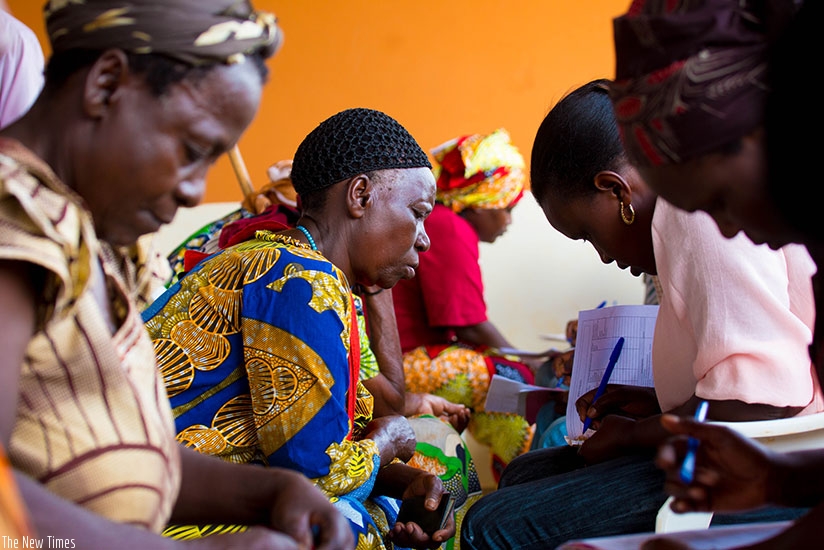More than half of Rwandan families are perceived as well-off, with at least one family member self-employed or working as an employee in the private or public sector or several family members doing business activities or their farms generating a surplus for markets, results from the new Ubudehe Social Stratification completed by the Government in 2015 shows.


More than half of Rwandan families are perceived as well-off, with at least one family member self-employed or working as an employee in the private or public sector or several family members doing business activities or their farms generating a surplus for markets, results from the new Ubudehe Social Stratification completed by the Government in 2015 shows.
The well-off households have been placed in Category Three of the classification and they comprise 53.7 per cent of all the households in the country and inhabited by more than 5.7 million people.
The New Times has gotten a copy of the report of the categorisation, which was approved by Cabinet last month, officially concluding the Ubudehe stratification exercise that had started in August 2014.
The categorisation captured a total of 2,358,488 households (10,382,558 people) across the country’s four provinces and Kigali City and classified them into four categories reflecting their degree of social and economic vulnerabilities.
The final results validated by people’s communities across the country reveal that 16 perc ent of the total households in the country (376,192 households) are found in Category One, which means that people in these families (1,480,167 people) live in extreme poverty without the ability to own or rent a house and often struggle to get food and basic items like soap.
The Minister of State for Community Development and Social Affairs, Dr Alvera Mukabaramba, said in an interview, last week, that people in Category One will continue to benefit from the government’s social protection programmes such as free healthcare through Mutuelle de Santé and One Cow Per Poor Family (Girinka), among others.
"These are people who need to be supported most. We are going to focus on them in our planning and include them in our social protection programmes,” she said.
Category Two — which is made up of those who own a house or able to rent one, can eat at least twice a day and can earn wages working for others often in non-permanent jobs – totals 703,461 households, representing 29.8 per cent.
Category Four, which comprises those who are very rich being big farmers, successful business people and top employees in the public and private sectors, has included 11,664 households representing 0.5 per cent of the total households.
The spatial distribution of the categories reveals the prevalence of Category One households in the Western Province (29.1 per cent), the Category Two households in Eastern Province (26.3 per cent), the Category Three households in Southern Province (26.5 per cent) and the Category Four households in Kigali City (57.6 per cent).
Mukabaramba said the new Ubudehe Social Categorisation, which will be reviewed after every three years, has shown that the number of Rwandans who live in extreme poverty has reduced since the people who are actually in Category One (16 per cent of households) used to be 24 per cent of households in 2012.
"The new classification shows that extreme poverty has reduced by about 9 per cent since 2012,” she said.
The minister said that while the Government will continue to help people under categories One and Two to get out of poverty, those in Category Three will also be encouraged to increase their productivity so they can move to the fourth category.
"For those in the third category; these are people who are well-off and we have to ensure that they continue to thrive and even move to the fourth category. They need to be taught about increasing their productivity in what they do,” she said.
The data in the new Ubudehe Social Categorisation will be used for planning purposes by different stakeholders starting with the preparation of the National Budget for the 2016/17 fiscal year, officials said.
The Ministry of Local Government, through the Local Administrative Entities Development Agency, will be responsible for Ubudehe data management and all related issues, while local governments will be coordinating regular updates of the data. editorial@newtimes.co.rw


